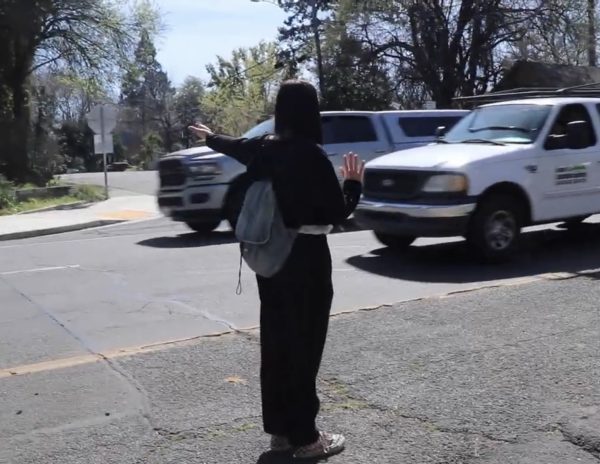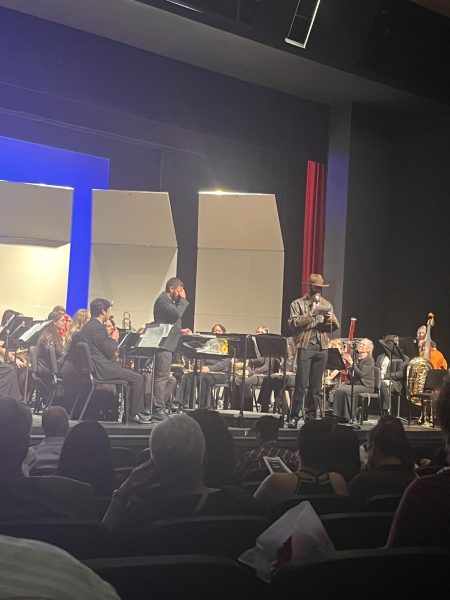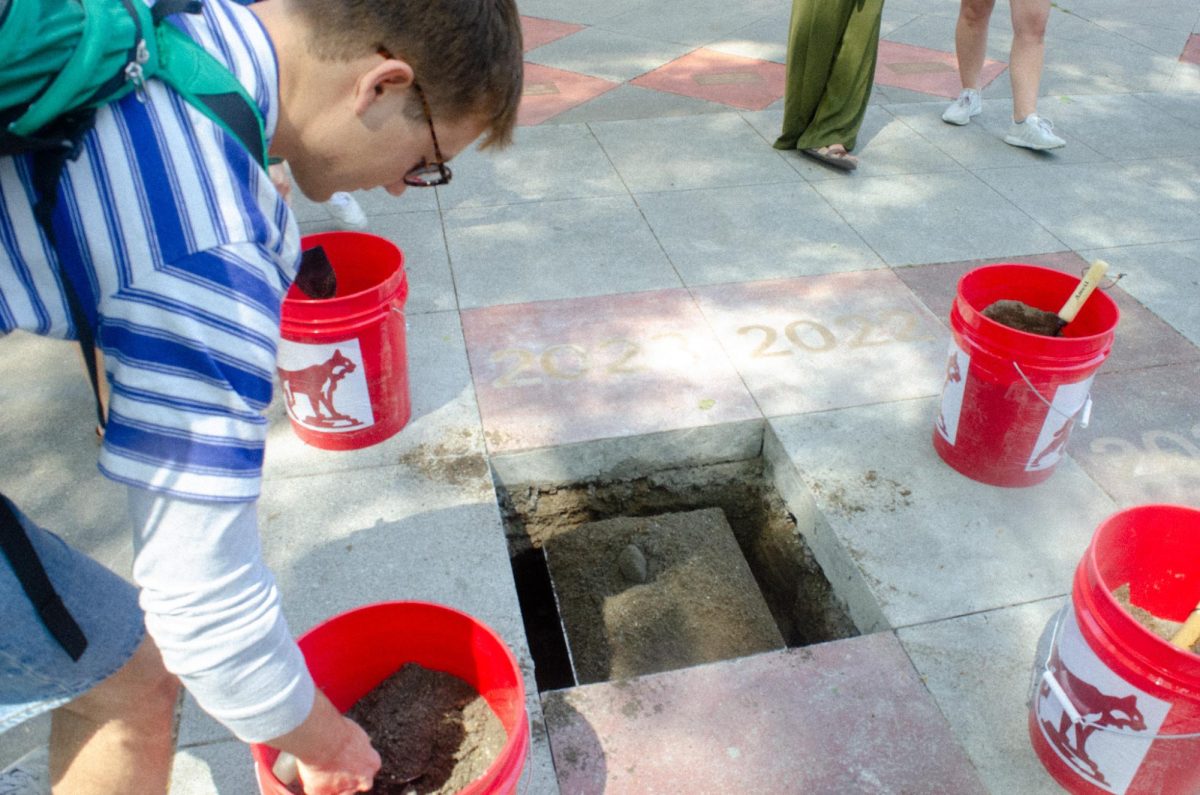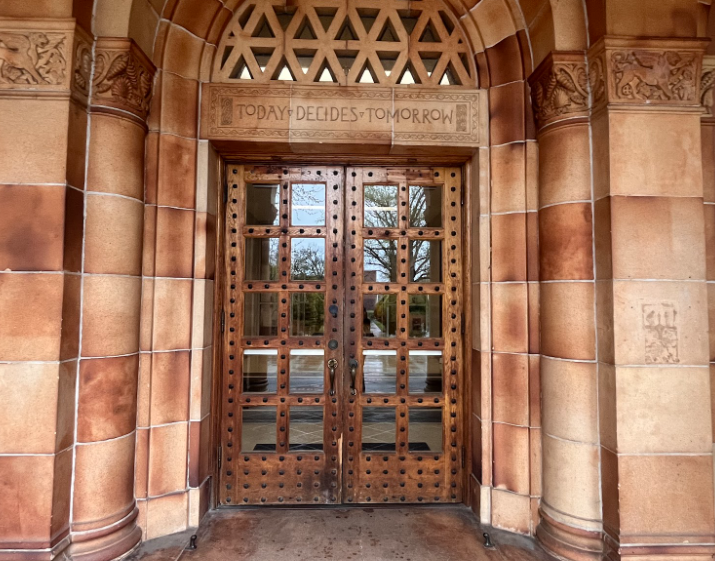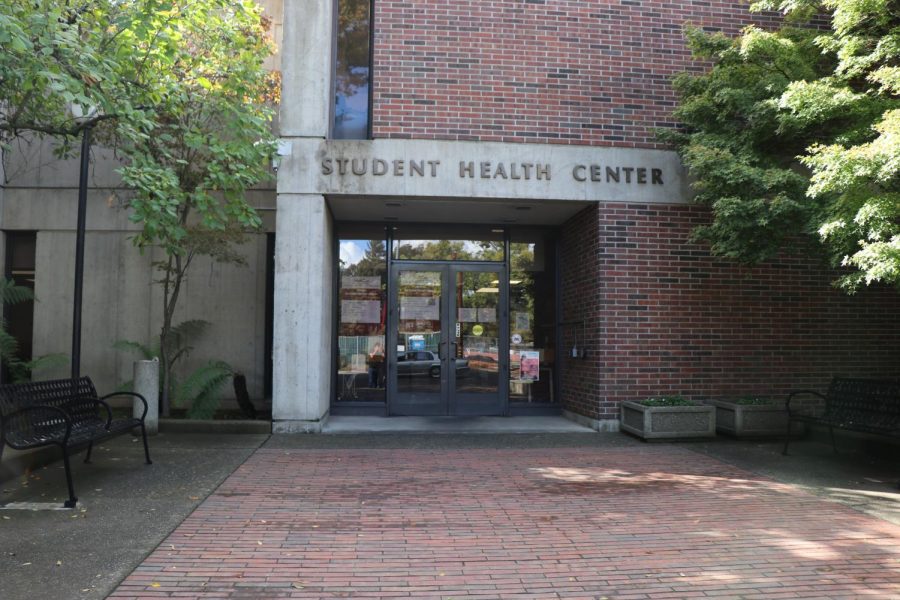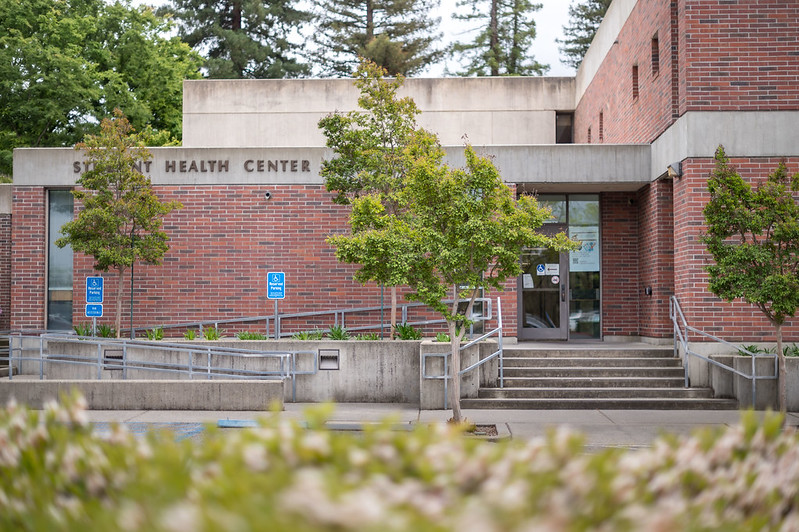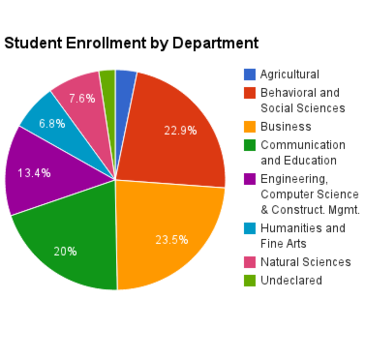
Stephanie Guest walked into her first programming class. New to the computer science major, she took a seat, noticing she was one of only four women in a classroom that seats 100.
“You know this is CSCI 111, right?” said one of the men in the class.
She turned to face him with an accusing look.
“Yeah, I know. Thanks,” she said.
“Just making sure,” he said.
Often women can made to feel uncomfortable or intimidated when choosing a major that tends to be dominated by men.
“When I tell people I’m a computer science major, some don’t believe me because I’m a girl,” Guest said.
Although she studies in a male-dominated field, Guest won’t let that stop her from pursuing her passion. Stereotyping takes place in many forms among all departments and is just one of the many reasons students decide to change their major.
Background
It’s common for students to come to college having no idea what they want to study or what career path they wish to take. Some students may have a clear idea of exactly what they want to do for the rest of their life. Then there are students who either have no idea or a clear idea, but nonetheless decide they want to change their major for whatever reason. Maybe once — maybe a few times.
The average student changes his or her major at least once, said Jordan Walsh, an academic advising intern.
According to the 2012-2013 Career Center Highlights, the majority of students enrolled at Chico State have declared a major in business or related areas of study within the business department, making up 23.5 percent of the enrollment population. The second most popular department based on enrollment is the College of Behavioral and Social Sciences with 22.9 percent of students, followed by the College of Communication and Education with 20 percent.

“The most common reasons students change their major are because of uncertainty of what they want to do when they graduate,” Walsh said. “And the realization that their initial plans are not ideal because the courses for certain majors are extremely difficult for students to pass.”
Factors that might influence a change in major plan may include more job opportunities or higher salaries in the future, distaste for the department, impacted programs, change of interest or even for one’s own well being.
More opportunities
Caitlin Jones, junior, changed her major from liberal studies to exercise physiology. Although teaching had been a dream of hers since fourth grade, she realized she would have more job opportunities in the future with a different area of study under her belt.
“With exercise physiology, I could do anything I wanted. There are so many more options in the future,” Jones said. “Into my second year, I switched.”
Research of Chico State students reflect that the most common reason for changing one’s major plan is to better plan for the future. Students often switch their intended career path later on in their education after realizing there are more employment opportunities after graduation, higher entry-level salaries or room for personal success and development in another area of study.
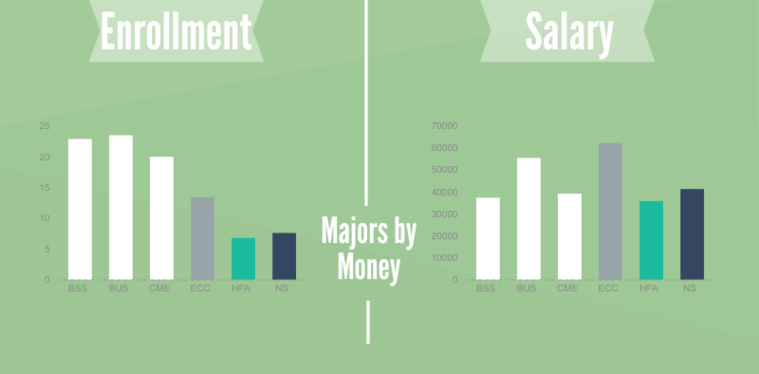
At Chico State, students studying within the College of Engineering, Computer Science and Construction Management will average the highest entry-level salaries after graduation. Even so, the enrollment for the department is made up of only 13.4 percent of the student population. Respectively, the majority of the student population, which is made up of behavioral and social sciences or communication and education-related majors, average lower entry-level salaries.
Impaction
The California State University system defines impaction as “when the number of applications received from fully qualified applicants during the initial filing period exceeds the number of available spaces.” Incoming first-year students are advised to enter the CSU system with an alternate major declared, in cases of impaction, or they may eventually be admitted to the oversubscribed major if they meet the supplementary admission criteria.
Some students realize much too late the effects of studying within an impacted major. At Chico State students are expected to follow a major academic plan to ensure they graduate within a timely manner. However, if students are unable to get into a course or are required to repeat a course, their entire major plan is altered. This can set students behind for graduation.
This was the case for Stephanie Gregoire, who realized her dream of becoming a nurse in a neonatal intensive care unit was unobtainable since the major was so impacted and very academically demanding.
“I’m not the type of person who gets easy grades. I work hard for them and get a B or C average,” Gregoire said. “For nursing, you have to get all A’s if you want to get into the program.”
After realizing she was putting herself behind in the major academic plan and most likely wouldn’t be accepted to a nursing school, Gregoire looked into changing her major to something that would still allow her to help children. Now a declared communication science and disorders major, the only thing she has to worry about is getting accepted into graduate school.
Change of Interest
While some students, like Gregoire, are forced to change their majors due to impaction, others want to in order to pursue a career in something they are passionate about.
This was the case for student Ryan Scott. While Scott had initially entered Chico State as an exercise physiology major, he soon realized the program was going to be a lot harder than he had thought. He weighed his options: the high salary, his interest in health and fitness and the possibility of one day training a professional sports team. Yet Scott could never shake his childhood dream of becoming a firefighter.
“I started thinking about firefighting again. I looked into it and it started to spark my interest more than anything. It was all I could think about,” Scott said. “After one day of training I knew that’s what I wanted to do for the rest of my life.”
Immediately after, Scott began talking to a firefighter who influenced him to change his major to communications with a minor in health and wellness.
Junior Alyssa Anenberg also decided to change her major to environmental science after losing interest in her previous area of study.
“The classes slowly diminished that drive. I felt that I wasn’t enjoying what I was studying and that I couldn’t commit myself to even more years of the same subject,” Anenberg said. “Even though the work load is demanding and I often find myself stressed, I’m in a happier state of mind and can picture myself working in this field.”
Department stigmas
While Guest is witnessing firsthand that virtually no girls exist in the computer science department, junior Teresa Quintero found that she was also being judged based on her major.
Examples of department stigmas include some students insisting that prenursing is the most rigorous area of study. Others suggest communications is an easy subject.
Initially Quintero enrolled at Chico State as a history major, but changed one year later to anthropology in the hopes of having more job opportunities in the future.
Even though Quintero was immediately immersed in the subject, she found that others had their own opinions about anthropology.
“When I tell people my major I always get side-eyed and asked why I chose this major,” she said.
Quintero is now learning that maybe others were right.
“I’m trying to change my major once again because I know I will have a very hard time getting a good job,” Quintero said.
For now she’s sticking to anthropology but has been exploring social work as another option should she decide to change her major again.
Setbacks
Students should understand the potential consequences of changing majors, especially if the decision to do so is made after the second year in school.
“(Academic advisors) suggest students decide their major by the time they are completed with their sophomore year because generally speaking, students take two years to complete general education requirements,” Walsh said.
After Guest changed her major, she realized there would be no way for her to graduate in the spring of 2016 as planned. Now a year behind, Guest will graduate in 2017.
Summary
The question arises: How do students ultimately settle on their major? Whether or not students change their major plan is a decision all their own, but what factors are the most influential when making their decision?
Changing majors may not be for everyone, but it is certainly common. College is a time for exploration and personal growth. While there are setbacks that come with changing a major, such as extending your time in college or having taken classes that ultimately won’t count toward the area of study, it is a choice that allows students to study their interests and pursue a career in a subject they are passionate about.
Although students such as Guest and Scott are now behind in their academic careers, they couldn’t be happier with their decision to change.
“I have learned so much that I never knew existed,” Scott said.
Haley Rodriguez can be reached at [email protected] or @haleyyrodriguez on Twitter.

